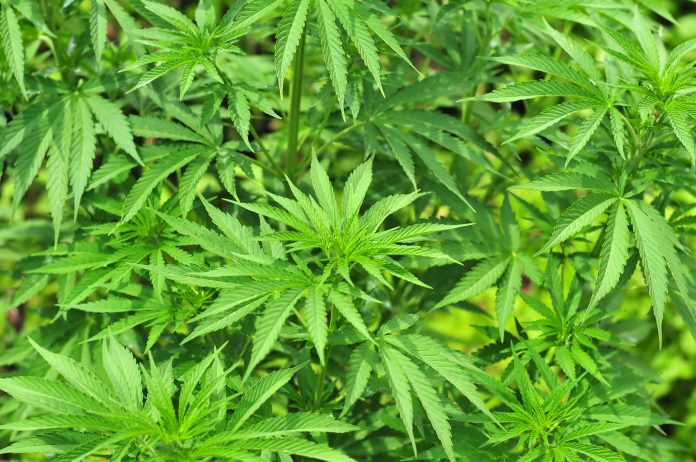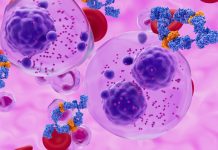CBD is at the forefront of pharmacology. So why has the European Commission changed its recommended status to “Narcotic”? Read on to find out more
Cannabis and cannabis-related products, while they have been around since 2,600BC, have been the focus of many pharmacological and political debates (1). Recently, the European Union has joined this dispute after the European Commission recommended that cannabis flowers and Cannabidiol (CBD) extracts should no longer be labelled as “food” products, but as “narcotics” (2).
This status change will have significant and dire consequences on the availability of CBD products in countries represented by the European Union. But is there proof in the pudding? What are the advantages and disadvantages of CBD containing products that impact on human health?
How does CBD work in the body?
There have been numerous investigations on the physiological and psychological benefits of CBD containing products since the first reported use in China from 2,600 BC (3). Through indirect and direct actions, CBD can modulate and influence a variety of processes in the body through the endocannabinoid system.
The endocannabinoid system is an endogenous signaling system that contains specific membrane receptors, which, when CBD is present, causes a cascade of events in the human body. In this system, there are two primary receptors, G-couple membrane protein-coupled cannabinoid receptors one and two (CB1 and CB2) (4).
The “lock and key” analogy
If your biochemistry is a bit shaky, never fear.
Think of this system as a lock and key, say for your front door. When you take your door key and put it in the lock, a specific process occurs, the lock is turned, and the door can open. In a way, this is much like the endocannabinoid system and its receptors. When CBD is present, it binds to CB1 and CB2 (5). It acts as a “key” and the receptors as they “lock”. When CBD binds, it causes a cascade of processes that modulates different parts of the human body.
These “locks” are present in various concentrations in the brain, central and peripheral nervous systems and tissues associated with the immune system. When the “key” (CBD) is present in these tissues, it excites and inhibits different parts of the brain. This, in turn, modulates many processes related to neurodegenerative diseases, cancers, and epilepsy (6).
In addition, studies have shown that CBD may influence neuroplasticity, neuronal cell death, inflammation, and tissue breakdown related to neurological diseases such as stroke and traumatic injury (7).
What does research show about CBD?
Not only can CBD influence neurological diseases and injury, but it also may improve a wide array of conditions across the human body, including, eating disorders, chronic pain, insomnia, nausea, glaucoma, depression, autism, schizophrenia and can also aid fertility and issues with sexual behaviour (8).
Recent research has demonstrated that animals with Alzheimer’s disease (AD) that, when administered CBD, neuronal cells were protected, and the loss of microglial cells (cells related to neuronal activity) activation and other neuronal cell loss was inhibited (9). This protective mechanism of CBD in the brain is supported by research looking at CBD and Parkinson’s disease (10).
When CBD is administered in rats, acting as human models for Parkinson’s disease, the uncontrolled movement of muscles is reduced. In this investigation, it is established that CBD can do this by acting as an antioxidant, protecting the cells in the brain (11).
While experiments including animal models are necessary, human investigations also support the protective role CBD has in both neurological and physiological diseases. Reports of CBD use to help treat epilepsy spans as far back as 1,800 BC (12). Recently, it has been demonstrated that patients with grand mal seizures, the seizure type which epitomises epilepsy, experience a significant reduction in the number of seizures (13).
What are the disadvantages of CBD?
Despite the evident variety of positive effects CBD has on the body, there are several disadvantages. The largest of the drawbacks is the risk that CBD may have negative interactions with many medications (14). Additionally, bioavailability, the amount of CBD the body absorbs, remains low. The range of side effects may also counter the benefits of CBD in some people and may act to have a negative influence on the disorder rather than any measurable benefits (15).
The lack of education and standing knowledge of CBD in patients and physicians act to enhance these disadvantages (16). If your doctor is unsure how CBD may interact with medications you are already taking or what dosages are best for you, the chance of them prescribing them at all is very low.
The change from “food” to “narcotic”
Although there are some disadvantages to CBD, it is evident that the benefits far outweigh these. Many reviews have demonstrated the significant benefits of CBD to neurological and physiological diseases in humans. Naturally, one may question the intentions and reasoning of the European Commission changing the current status of CBD from “novel food” to “narcotics” (17). Several experts are currently perplexed by this decision, especially as there are clear benefits to CBD, and it has been labelled as a novel food for nearly two years in the European Union (18).
The change in recommendation appears to move countries in the European Union backwards with the goal to try to assist patients with credible treatment options. At this point, it is hoped that some sway may help in changing this opinion ahead of the December voting at the World Health Organization.
The bottom line
The change in the recommended status of CBD in the European Union comes as a surprise to a majority of scientists and experts across the world (19).
A myriad of recent investigations supports the fact that CBD has very real medicinal value. There are some questions surrounding efficacy, dosage, and drug interactions, though it is clear that CBD is a safe substance (20). This leaves us wondering whether the recent change in the recommendation to “narcotic” is just the commission erring on the side of caution, or is there something more? I guess we will find out in December.
References
https://www.ncbi.nlm.nih.gov/pmc/articles/PMC5938896/
https://www.ncbi.nlm.nih.gov/pmc/articles/PMC5938896/
https://www.sciencedirect.com/science/article/abs/pii/S0163725897820013
https://www.sciencedirect.com/science/article/abs/pii/S0163725897820013
https://journals.plos.org/plosone/article?id=10.1371/journal.pone.0000709
https://www.frontiersin.org/articles/10.3389/fphar.2017.00069/full
https://journals.plos.org/plosone/article?id=10.1371/journal.pone.0000709
https://physoc.onlinelibrary.wiley.com/doi/full/10.1113/jphysiol.2004.068460
https://www.sciencedirect.com/science/article/abs/pii/S0006899306034718
https://www.sciencedirect.com/science/article/abs/pii/S0006899306034718
https://www.ncbi.nlm.nih.gov/pmc/articles/PMC5938896/#ref25
https://www.karger.com/Article/Abstract/137430
https://www.ncbi.nlm.nih.gov/pmc/articles/PMC5938896/#ref25
https://www.ncbi.nlm.nih.gov/pmc/articles/PMC5938896/#ref25












